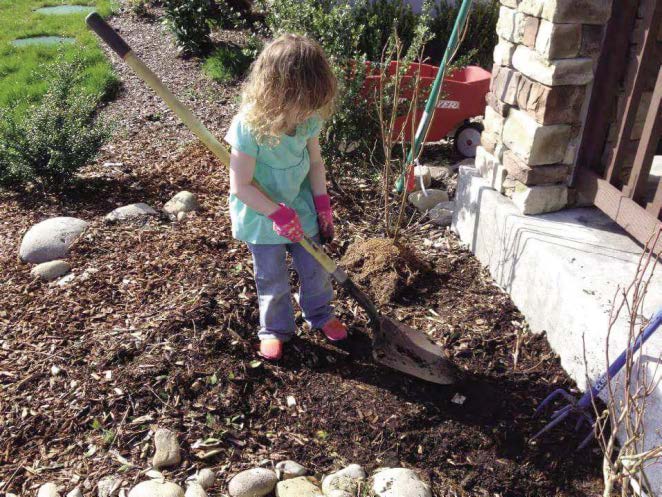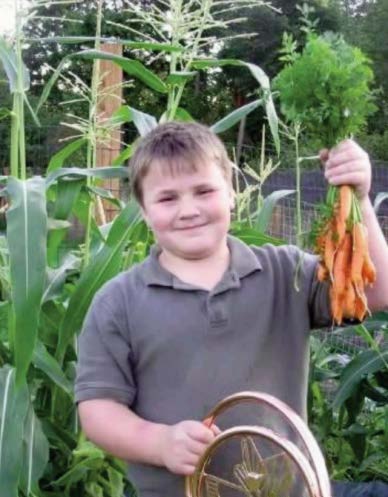
56 HELPING PARENTS IN MILITARY FAMILIES DECREASE STRESS AND ANXIETY
By Angela Shaw and Reanna Shaw
PUZZLES & CAMO
61 NEVER FORGOTTEN
By Shelly Huhtanen
MILITARY LIFE
62 GIVING YOUR CHILD A HAPPY, HEALTHY START
It's all about putting the pieces together to build strong systems of support.
HELPING PARENTS IN MILITARY FAMILIES TO DECREASE STRESS AND ANXIETY
BY ANGELA SHAW AND REANNA SHAW
The implicit theme of the military family is one that tackles challenges head-on, thrives upon flexible thinking, and builds resiliency and independence, but the military life is packed with more than perseverance and adventure-filled moments. Though the military life is a fulfilling and exciting one, it is also a life that is in a constant state of flux.
At the forefront of military life are anxietyproducing events that are often unpredictable, which typically translate as multiple moves and/or deployments. Change is hard on any family, but the changes sparked by military orders can alter the military family's core lifestyle. Such alterations to the family way of life may cause an array bumps and hurdles ranging from a temporary change from co-parenting to sole-parenting when deployment arises. Connection to family or close friends can be severed when a PCS (permanent change of station) occurs, or a shift in cultural climate when a change of duty station from a metropolitan area to a rural outpost takes place. Whatever the unexpected situation, anxiety and stress are familiar foes to those who face a change in daily life activities. For spouses of service men and women, the whirlwind of unpredictable demands caused by frequent TDAs (temporary duty assignments), deployments, field time, and trainings, coupled with ever-present worry and the unsettling dis-connect from extended family and back-home friends can become significant factors that lead to a need to seek help to cope with the overwhelming feelings associated with the stress and anxiety. However, it is often difficult for children in families facing the toxicity of stress to verbalize their anxiety or worry in a conventional manner, especially the zero to three crowd or children with special needs. Therefore, behavior is often the primary communication device used to express the anxiety or worry that a child is feeling during times of family stress.
In order to support children in coping with stress and anxiety, parents must be mindful about taking care of themselves, too. This can be accomplished through providing a balanced and healthy lifestyle, connecting with your personal support squad including friends and relatives, and being active in your community. Some great avenues toward self-care that will ultimately support you in your endeavor of providing the best possible life experiences for your children include:
• Support groups
• Special needs web sites
• Military family web sites
• Your installation's Morale, Welfare and Recreation program
• Exercise groups
• Special interest clubs or organizations
• Community events
• Your child's school events
• Local high school, college, or community theater and music program performances
Children will find joy and fulfillment through play, laughter, and connection to supportive and understanding people in their lives. Foster a strong sense of family connection through fun activities and a shared purpose. Local activities within the community, shared with parent or parents, can lend a sense of connection to your child. Going to the Back-to-School night or the special after school events, such as Running Club or Computer Club, affords your child a connection and place within his or her learning community. Kids can connect with others, through local events. They will experience, first hand, the authentic parent/child model of others, rather than their idealized version of that situation. Check out the nearby college, community library, or local recreation and park district sites to discover the treasure trove of local events available for free or at a low cost. Check in with your military center or ask the school counselor if groups are available for children of deployed parents, in order to afford the connectivity and support of other kids in similar situations.
Create your own special events and family customs to maintain family routines that provide consistency, as well as provide for relaxation, engagement, and connection throughout all your PCS adventures. The following list offers some ideas to spark your own design:
FAMILY NIGHTS OR DAYS
Create a special night or day of the week that you carve out just for Family Time. Turn off the technology and be present as a family. An hour or two of board games, puzzles, kite flying or, perhaps, cooking or crafting together will help build your child's social interaction skills, attention and focus, and motor planning, in addition to providing connection and honor of the family. Check out kid or family magazines for ideas. Highlights Magazine for Kids at highlights.com often provides great crafting and cooking ideas that are kid friendly. Gather as a group to read or listen to a story. Reading fiction together and discussing the nonverbal cues that communicate emotions helps children to grow emotionally through increased Theory of Mind (ToM), gaining empathy, and discovery of self.

PLAYS TOGETHER: Children will find joy and fulfillment through play, laughter, and connection to supportive and understanding people in their lives.


GOOD TO GROW: Tori and Jacob, the two youngest of a retired Army dad, enjoy the fruits of their labor and the joy of family gardening projects at their various PCS destinations. There is always room for raspberries even within existing landscape of the front yard, and from the small raised beds within a stretch of the backyard, the family garden provides many of the fresh veggies for their dinnertime salads.
GARDENING
Unplug yourself and your kids through gardening at each new PCS home. In addition to making healthy eating fun for kids, the heavy work of digging, raking, and pushing a wheelbarrow supports the sensorial needs of our students with sensory processing needs. Try planting a small raised bed or growing a few edibles within the existing landscape of the new yard. Perhaps, if outdoor space is limited at your new home, grow some herbs in your kitchen window or within small containers on a sunny porch. Tower gardens are trendy vertical gardens that offer space saving benefits, as well as responsibility and step following opportunities. A leaning trellis will allow beans or other edible vines like grapes or kiwi to climb and grow. A themed garden, such as a salsa garden or a butterfly garden can be fun and encourage connection to family, neighborhood friends, and the outdoors. In addition to the benefits of family connection through tradition building, gardening inspires one to take ownership of their environment, both dependably and emotionally. Moods and anxiety are lightened through relaxing, observing, and nurturing plants and flowers. Self-esteem is increased through positive experiences of exploration and discovery. Peruse the web or visit the library or garden store together, to share and explore garden ideas. Check out websites like kidsgardening.org to get some great ideas planted.
YOGA
In addition to providing physical benefits of exercise, stretching, coordination, and motor planning, the practice of yoga for children with autism and other special needs encourages and teaches children coping skills and how to respond to stress, tension, worry, and anxiety. Teaching children specific breathing strategies and yoga poses supports them in reducing anxiety, releasing difficult emotions and tension in the body; therefore, paves the way for calmer, more peaceful and healthier lives. Further, yoga facilitates self-awareness which is particularly instrumental in helping kids with autism or other learning disabilities to learn selfregulation through becoming aware of their bodies and breathing connection. Yoga can be practiced with parents, increasing the calm within the adult as well. Yoga stories are a powerful way to provide calming or courage building yoga sequences for children through a playful and engaging platform. Through storytelling activities, the brain's emotional region is activated and supports elements of Theory of Mind and empathy. Bookstores and libraries may have some great yoga kid books or check out websites, such as kidsyogastories.com for some tantalizing ideas.
Navigate the websites provided below to begin your journey toward discovery and inspiration as you put together the pieces that will encourage and build the strong systems of support for your children and decrease stress and anxiety within your family's hearts and lives.
HIGHLIGHTS
A mainstay in the kids' magazine trade. Highlights magazine group offers an array of ages from infancy to the brink of the coming of age many hours of fun, beyond the magazine. Their website includes ideas, parenting tips, lists, activities, crafts, games, recipe how-to's and more to encourage and support kids to bond together as a family and celebrate the big or small everyday events in their lives. Their motto is "Fun with a Purpose™", in order to help children become their best selves.
KIDSGARDENING
Explore archived editions of KidsGarden News or subscribe to their monthly e-newsletter that offers thematic lesson plans, activity ideas, seasonal gardening tips, and more. KidsGardening is a national nonprofit that has led the school gardening movement for 35 years. Their message tells it all: "We create opportunities for kids to learn through gardening, engaging their natural curiosity and wonder by providing inspiration, community know-how and resources." In addition to the newsletter, you will find links to educator resources complete with webinars, gardening activities, books, and other great supports. The gardening toolbox link provides gardening basics, activities, and growing guide. I love the colorful and informational blog spot. Tractor over to the website and dig in.
KIDS YOGA STORIES
Giselle Shardlow is the author of Kids Yoga Stories. Her yoga books for kids get children learning, moving, and having fun. Giselle draws from her experiences as a teacher, traveler, yogi, and mom to write the yoga stories found at kidsyogastories.com/store or on Amazon (amazon.com/author/giselleshardlow) worldwide. The purpose of her yoga books is to foster happy, healthy, and globally educated children. She lives in Boston with her husband and daughter. In addition to presentation of opportunities to buy her merchandise to support yoga storytelling, Giselle offers a newsletter to provide free updates about kid yoga ideas, articles about parenting, yoga, travel and books, as well as helpful yoga updates, news about books and giveaways.
MILITARY.COM
The website shares that they are the largest online military and veteran membership organization with 10 million members strong. The free membership connects service members, military families and veterans to all the benefits of service. Within the site there is a plethora of information with regard to supporting families of the military. Of particular interest is The Emotional Cycle of Deployment: A Military Family Perspective which can be accessed through the following link: military.com/spouse/military-deployment/dealing- with-deployment . A multitude of other topics exist within the website that endeavor to support and provide social/emotional resource to the military family, as well as other military life events and situations, education, health, and home owner and real estate benefits, military discounts as well as hot-topic news stories.
SESAME STREET FOR MILITARY FAMILIES
This is a free website where families can find an array of information and multimedia resources on topics ranging from deployments, homecomings, injuries, grief, and self-expression. The website is bilingual (English and Spanish) and provides a critical outreach tool to support military families and their young children cope with the challenges of deployment and build resiliency in times of separation and change. A link specific to Sesame Street for Parents is available at sesamestreet.org/parents/topicsandactivities/toolkits/tlc
ZERO TO THREE
Supports military families in an endeavor to increase awareness and collaboration throughout the military community in support of parents and professionals to increase effectiveness in the care of very young children and their families. Within the website, families and professionals have access to an array of information to include a series to build the resilience of young children and their families through the specialized lens of the military family. In addition to developmental topics of ages and stages, Zero to Three provides topics relative to Early Intervention, which is a provision of the federal legislation of the Individuals with Disabilities Education Act (IDEA), under "Child Find" (U.S. Dept. of Education, 2011). The "Over There" Activity Book, available within the website, provides a helpful support for children on the autism spectrum who experience difficulty with theory of mind and social understanding. Of particular interest relative to the topic of stress is their on-line series Supporting Young Children, which provides a collection of brochures focused upon the unique military family experience of parenting a baby or toddler, during times of stress or separation. Additionally, there are a number of resources specific to a wide variety of stress inducing topics that arise within the military family. •